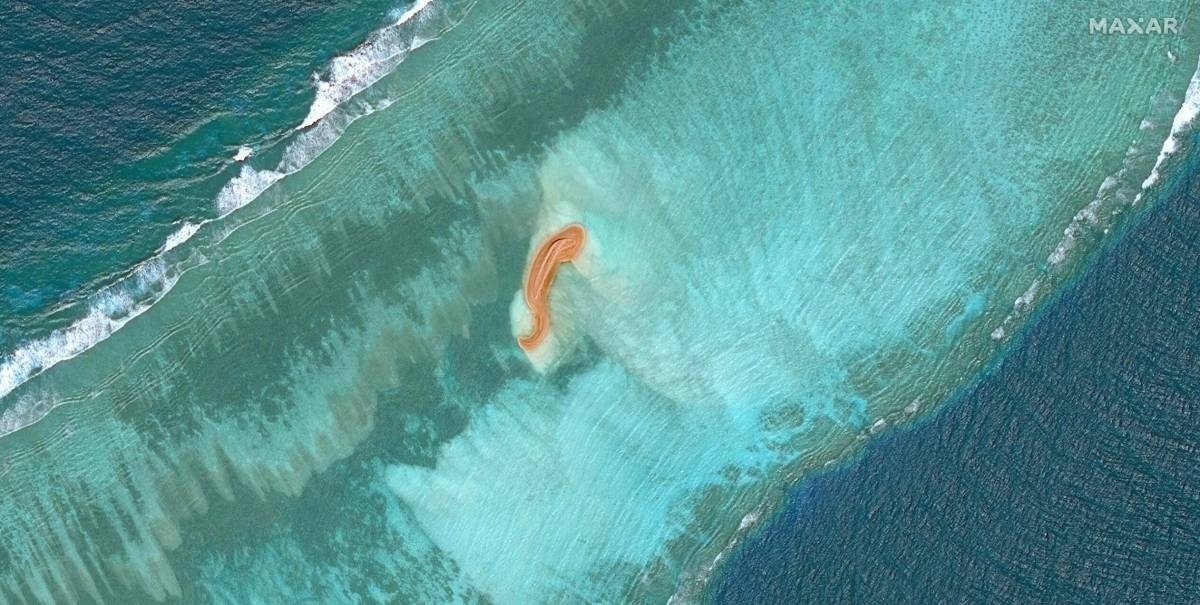Philippines expresses concern over reclamation activities by China in Spratlys
The South China Sea (SCS) is crucial to the Belt and Road Initiative (BRI) – the dream project of Chinese President Xi Jinping – but ongoing disputes in the SCS have only complicated the matter. China, in pursuit of its hegemonic policy in South East Asia, wants to take control of the SCS because it is a key naval passage with Africa and Europe. An estimated $3.4 trillion of international trade passes through the SCS and it is believed to be abundant in untapped natural resources including oil. Beijing lays claims to 80% of the SCS. In recent years, it has taken increasingly aggressive steps to bolster its claims to the strategic waters, which it vaguely marks with a so-called nine-dash line that overlaps with the coastal waters and territorial claims of ASEAN member states viz. Vietnam, Malaysia, the Philippines and Brunei.
On December 20, 2022 Bloomberg reported reclamation activities by China in unoccupied features of the Spratly Islands. The report claimed fresh reclamations were taking place on Eldad Reef, Whitsun Reef, Sandy Cay and Lankiam Cay. Citing satellite images from US officials, it stated that new land formations had emerged around the contested Spratly Islands, where a Chinese vessel with a hydraulic excavator was seen operating over the years. In the Spratlys, China occupies at least seven islands and rocks, militarizing them with runways, ports and radar systems. The Spratly Islands, believed to be rich in gas and mineral deposits, are being claimed in whole by China and in part by Brunei, Malaysia, the Philippines, Taiwan and Vietnam
The Philippines Department of Foreign Affairs (DFA), taking cognizance of the Bloomberg report, expressed serious concern and stated that such activities contravene the Declaration of Conduct on the South China Sea’s undertaking on self-restraint and the 2016 Arbitral Award. The US too expressed support for the Philippines amid reports of Chinese vessels swarming near Iroquois Reef and Sabina Shoal in the Spratly Islands and issued a statement that the reported escalating swarms of PRC vessels interfere with the livelihoods of Philippine fishing communities and also reflect continuing disregard for other South China Sea (SCS) claimants and states lawfully operating in the region. The US Department of State backed the Philippines’ calls for China to respect international law in the SCS, as reflected in the UN Convention on the Law of the Sea (UNCLOS) and the 2016 ruling of a Hague-based arbitral tribunal that voided China’s sweeping claims over the disputed waters.
Chinese Foreign Ministry spokesman Mao Ning, however, called the report completely groundless. China accused the US of meddling and trying to drive wedges among claimant-countries in the region, including the Philippines. The Chinese Embassy in Manila said that the US interference in the overlapping claims in the SCS is tantamount to creating tensions and harming regional peace and stability. The Embassy criticized the remark of the US Department of State underlining the presence of Chinese vessels in the Spratly Islands interfered with the livelihoods of Philippine fishing communities.
Incidentally in December 2022, the Philippine Coast Guard informed it had recovered suspected debris in Philippines-claimed waters off the western province of Zambales in South China Sea (SCS). The debris is believed to be from a Long March 5b Rocket that was launched by China on 31 October 2022 from Wenchang Space Launch Center in Hainan Province. In a similar incident in November 2022, the Philippine military had accused China of blocking a local navy ship and confiscating rocket debris recovered by the Filipinos near Pag-asa (Thitu), a Philippines-occupied island in the Spratlys chain.
Several China militia vessels are found roaming in the vicinity of BRP Sierra Madre, a dilapidated vessel that serves as the Philippine outpost in Ayungin Shoal (Second Thomas Shoal) in the SCS. They often challenge and shadow the Philippine supply boats to BRP Sierra Madre in order to disrupt the mission. Chinese radio claims that the sea area near the Philippine ship is ‘under the jurisdiction of the People’s Republic of China,’ and that they are allowing only supplies to be delivered and warn that bringing construction materials will be dealt with.
A total of 193 Note Verbales (NVs) have been filed by the Philippines against China in 2022 but of no avail. Beijing continues to violate the sovereignty and jurisdiction of Philippines in the SCS thereby undermining the peace and stability of the region. Countries contesting the SCS need to be cautious and take a unified and strong stance against China. Balancing economic benefits from trade and dealing with the tremendous maritime threat from their giant neighbor may not be easy.













